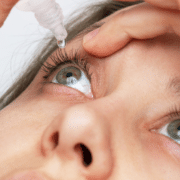The connection between diabetes and loss of vision has been well-established over the years. Diabetes is a disease that affects millions of people world-wide. It develops when blood sugar levels are chronically high. Diabetes is a serious condition that causes vision loss as well as other health problems. If you have diabetes, talk to your eye doctor in Hummelstown, PA so that your eye doctor can be aware of the condition and be on the lookout for specific problems with your vision such as the following.
Increasingly Blurred Vision
Many people suffer with blurry vision at distances or close-up. This kind of blurry vision is caused by focus problems that can typically be corrected with eyeglasses or contact lenses. But if you have diabetes and you notice that your vision is getting more blurry, book an eye doctor appointment. This could be a sign that your vision is deteriorating due to diabetes.
Cataracts
Diabetes is the main cause of blindness in adults aged between 20 and 74. One way that diabetes leads to blindness is from cataracts. Cataracts are growths that occur on the lens of the eyes. They cause the lens to become cloudy, impairing vision. Cataract removal in Hummelstown, PA is available. But if you have diabetes, make sure your eye doctor knows it, so they can give you information about the correlation between diabetes and cataracts.
Glaucoma
Glaucoma is another serious eye problem that is much more prevalent in those who have diabetes. Glaucoma is a condition where pressure builds up within the eye, disrupting the brain’s signals from the optic nerve. Glaucoma almost always leads to blindness if it is left untreated. Every eye exam you receive at Kirman Eye in Hummelstown, PA will include a glaucoma test. The earlier this condition is diagnosed, the better the possible outcome.
Diabetic Retinopathy
Diabetic retinopathy is a condition that is specifically related to diabetes. People without diabetes would not develop this condition. With this condition, blindness will almost always happen eventually. Thankfully, diabetic retinopathy can be stopped, but the symptoms may not always be able to be reversed, depending on how much nerve damage has already occurred.
Always inform your eye doctor of any underlying medical problems, especially diabetes. The more your eye doctor knows about your health, the better able they will be to protect your vision.







